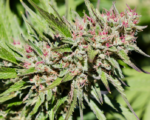The industrial hemp market is gaining momentum worldwide, with Asia-Pacific (APAC) taking the lead. According to Technavio, the market is projected to grow by a staggering USD 13.90 billion between 2024 and 2028, driven by a compound annual growth rate (CAGR) of over 25.25%. This growth is fueled by the rising adoption of hemp in various industries and supportive legalization efforts in key regions.
APAC: The Growth Engine of the Hemp Market
The APAC region is expected to contribute 39% to the global industrial hemp market’s growth. Countries like China, India, Japan, South Korea, and Australia are at the forefront, leveraging their strong agricultural traditions and recent legalization efforts.
China is a dominant force, with its long history of hemp use spanning papermaking, textiles, and traditional medicine. The country’s industrial hemp sector has expanded rapidly due to its well-established production infrastructure and increasing demand for sustainable materials. Similarly, India and Japan are exploring hemp cultivation to meet the growing demand for plant-based products, aligning with global sustainability trends.
In addition to cultivation, APAC’s hemp market is characterized by innovative applications. From eco-friendly textiles to biofuels, the region is setting new benchmarks in leveraging hemp’s potential across diverse industries.

Hemp Seeds: The Fastest-Growing Segment
Hemp seeds are emerging as a significant segment in the global market. Known for their nutritional value, these seeds are increasingly used in food and beverages, particularly in plant-based products like hemp milk, protein powders, and oils.
- Two Main Types: The market differentiates between organic and conventional hemp seeds. Organic variants, free from harmful chemicals, are highly preferred by consumers.
- Subcategories: Hulled seeds, also called hemp hearts, are appreciated for their nutty flavor and nutritional benefits. Whole seeds, on the other hand, are rich in fiber and versatile in usage.
- Rising Popularity: As plant-based diets gain traction, hemp seeds are becoming a staple in many households, contributing significantly to the market’s growth.
Expanding Applications: Beyond Textiles and Food
Hemp’s versatility is unmatched, with its applications spanning textiles, food, biofuels, and personal care products. Here’s a closer look at some of the key industries driving demand:
- Textiles: Hemp fibers are durable and sustainable, making them an excellent alternative to synthetic fabrics. The fashion industry’s shift towards eco-conscious materials has boosted hemp’s popularity.
- Biofuels: Hemp offers a renewable source of energy. Its use in bioplastics and biofuels helps reduce carbon emissions, aligning with global climate goals.
- Personal Care: Hempseed oil, rich in essential fatty acids, is widely used in cosmetics for its moisturizing and anti-inflammatory properties.
- Animal Care: Hemp-based products are increasingly incorporated into pet food and care items, appealing to eco-conscious pet owners.
Challenges in Cultivation and Production
While the industrial hemp market is poised for robust growth, challenges persist. Hemp cultivation is highly weather-dependent, with extreme temperatures impacting yields. Additionally, the cost of machinery and pesticide-free farming practices raises production expenses.
Some of the key hurdles include:
- Weather Sensitivity: Fluctuating weather conditions, especially in regions with harsh winters or prolonged droughts, affect crop quality.
- High Input Costs: Advanced machinery and organic farming methods add to production costs, potentially limiting accessibility for smaller growers.
Despite these challenges, advancements in farming technology and the increasing use of hemp in diverse industries are expected to mitigate some of these issues.
Global Players Shaping the Market
The competitive landscape is dominated by established players and emerging startups, each contributing to the industry’s dynamism. Companies like Aurora Cannabis, Canopy Growth Corporation, and Tilray Brands are leading the charge with innovative products and global outreach.
A Snapshot of Key Players
| Company | Specialization |
|---|---|
| Aurora Cannabis | Medicinal and recreational hemp products |
| Canopy Growth Corp. | Comprehensive hemp-based solutions |
| Tilray Brands Inc. | Hemp-derived wellness products |
| HempFlax Group BV | Sustainable hemp textiles and fibers |
| Medical Marijuana Inc. | CBD oils and pharmaceutical applications |
These firms are not only shaping consumer preferences but also influencing government policies and agricultural practices worldwide.
The Road Ahead
With its myriad applications and environmental benefits, industrial hemp is cementing its place as a key player in the shift toward sustainable practices. The global market’s rapid expansion, led by APAC, reflects a growing awareness of hemp’s potential to address some of the planet’s most pressing challenges, from climate change to resource scarcity.
As consumer demand for plant-based, eco-friendly products rises, the industrial hemp market is well-positioned to thrive. The next few years will be critical in determining how well the industry navigates regulatory hurdles and production challenges while meeting the burgeoning demand.
David Johnson is a respected writer known for his expertise in crafting compelling articles about cannabis. With a passion for exploring the intersection of cannabis, health, and wellness, he sheds light on the therapeutic properties and potential uses of this versatile plant. David’s in-depth analysis and thought-provoking commentary offer readers a deeper understanding of the evolving landscape of cannabis legislation, consumption methods, and industry trends.








